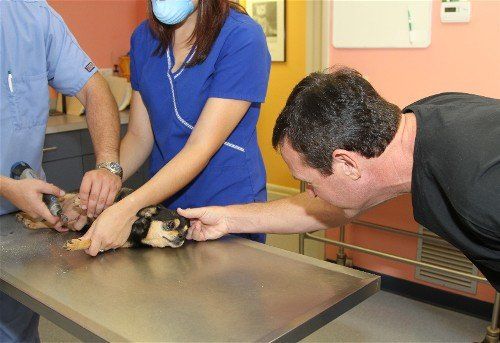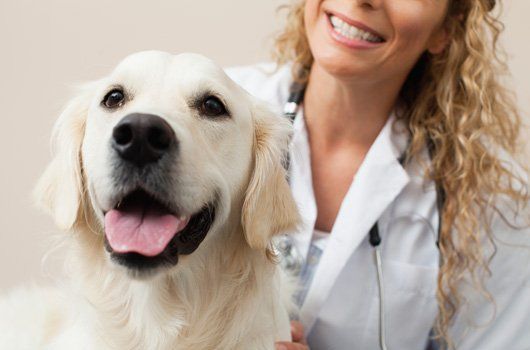Understanding and Treating Your Dog's Separation Anxiety
25 September 2017

Bringing a dog into your home and family can be fun and exciting, but you will need a great deal of responsibility to care for this new family member. From feeding and training to protecting their health and happiness, dogs can present challenges you haven’t had before.
While most tasks are obvious, certain dogs require treatment and medication for emotional issues that can become dangerous. Because 20% of the 80 million dogs in the nation suffer from separation anxiety, you should understand this disorder to protect your dog, family, and belongings.
With this guide and your veterinarian's help, you will learn the signs and treatment options for dogs with separation anxiety. Basics of Separation Anxiety
Your dog can’t verbally communicate how they are feeling, but they will display these emotions in physical ways. Whether you leave your puppy home alone in a new place or your older dog is left for a long period of time, they may begin feeling nervous or anxious.
This feeling of anxiety is called separation anxiety. While some dogs can be left alone without any issues, separation anxiety is more common than most people think.
Dogs with separation anxiety may bark and cry when they are left alone, but you will most likely not hear or notice this behavior. However, there are behaviors that you can observe as indications that your dog may have a problem.
This feeling of anxiety is called separation anxiety. While some dogs can be left alone without any issues, separation anxiety is more common than most people think.
Dogs with separation anxiety may bark and cry when they are left alone, but you will most likely not hear or notice this behavior. However, there are behaviors that you can observe as indications that your dog may have a problem.
Home Damage
Your dog may become so nervous that they feel the need to act on this emotion. Dogs may become aggressive, chewing on walls, doors, and furniture inside your home. You may also notice shoes, clothing, and other belongings are damaged.
Also, dogs with separation anxiety are known to knock down window treatments in an attempt to see outside to try to find you.
Also, dogs with separation anxiety are known to knock down window treatments in an attempt to see outside to try to find you.
Bathroom Accidents
If you are still housetraining your dog, bathroom accidents may be difficult to distinguish from separation anxiety. If your dog is trained, having these accidents in the home while you are gone is almost always a sign of separation anxiety.
Escape Attempts
If you leave your dog in an enclosed space indoors or in a fenced yard outside, your dog may have an increased desire to run away when you leave them alone.
Dogs can behave differently throughout the day, but damage to the home and bathroom accidents while you are away are often signs of aggressive behavior due to separation anxiety. If you notice one or more of these issues, make sure to consult a veterinarian
immediately.Treatment for Separation Anxiety

Before attempting any treatment, your dog's veterinarian will need to run a series of tests to ensure there is no brain damage or other underlying medical condition causing this new behavior.
Once cleared of any medical condition, your veterinarian will recommend treatment options such as desensitization or medication.
Once cleared of any medical condition, your veterinarian will recommend treatment options such as desensitization or medication.
Desensitization
Your vet may recommend desensitization to ease your dog's separation anxiety. This is the most common form of treatment and is often effective. When using this method, you will work with a behavioral therapist and trainer to help your dog.
Jingling your car and house keys, opening and closing doors, or starting your car's engine may all trigger emotion in your dog. You can repeat these tasks a few times throughout the day to decrease your dog's sensitivity.
Each time you jiggle the keys or start the car, your dog should show less emotional distress. After a few days or weeks of desensitization therapy, your dog will be able to feel more comfortable when left alone.
Jingling your car and house keys, opening and closing doors, or starting your car's engine may all trigger emotion in your dog. You can repeat these tasks a few times throughout the day to decrease your dog's sensitivity.
Each time you jiggle the keys or start the car, your dog should show less emotional distress. After a few days or weeks of desensitization therapy, your dog will be able to feel more comfortable when left alone.
Medication
If you prefer a more efficient way to reduce your dog's separation anxiety, medications may be necessary. Today, many dogs are taking antianxiety and antidepressant medications to relax their minds and bodies.
These medications use calming effects to reduce aggression and hyperactivity and therefore decrease the risk of emotional discomfort while you are away. With ongoing treatment, these medications can completely stop problematic behavior caused by separation anxiety.
For help with your dog's behavior, health, and wellness, contact
Pet Medical Center of Vero Beach today.If left untreated, roundworms and hookworms can cause serious health problems for your pet. Read about the signs in this blog and how to take action.
Many pet owners overlook the importance of dental health in their pets. Read this blog to learn why dental health is so important for your animal companion.
Your beloved pets, whether our loyal canines or our independent felines, play an integral role in your life. Read on to learn how to manage their stress.
Dogs can suffer from a plethora of digestive issues. But how can you tell if your pup has any digestive issues? Discover some key signs to look out for.
A tick’s bite can spread deadly diseases to you and your pet. Learn about a few tick-borne conditions your pet may contract if they spend time outside.
Has your animal's hair changed? Discover what this might mean and if your best friend might need treatment for their potential problem.
Prepare your puppy for its first vet visit to avoid challenges during a medical examination. This post highlights five ways to help your puppy.
If your dog is pregnant, you might feel unprepared. Read this blog to learn everything you should know about canine pregnancy, labor, and delivery.
A surgery is an invasive procedure that requires preparation to ease your cat and ensure a smooth recovery. Discover tips to prepare your cat for surgery.
Just like humans, pets can face various health issues. Learn about the most common conditions that pets face and how to avoid and treat them.





